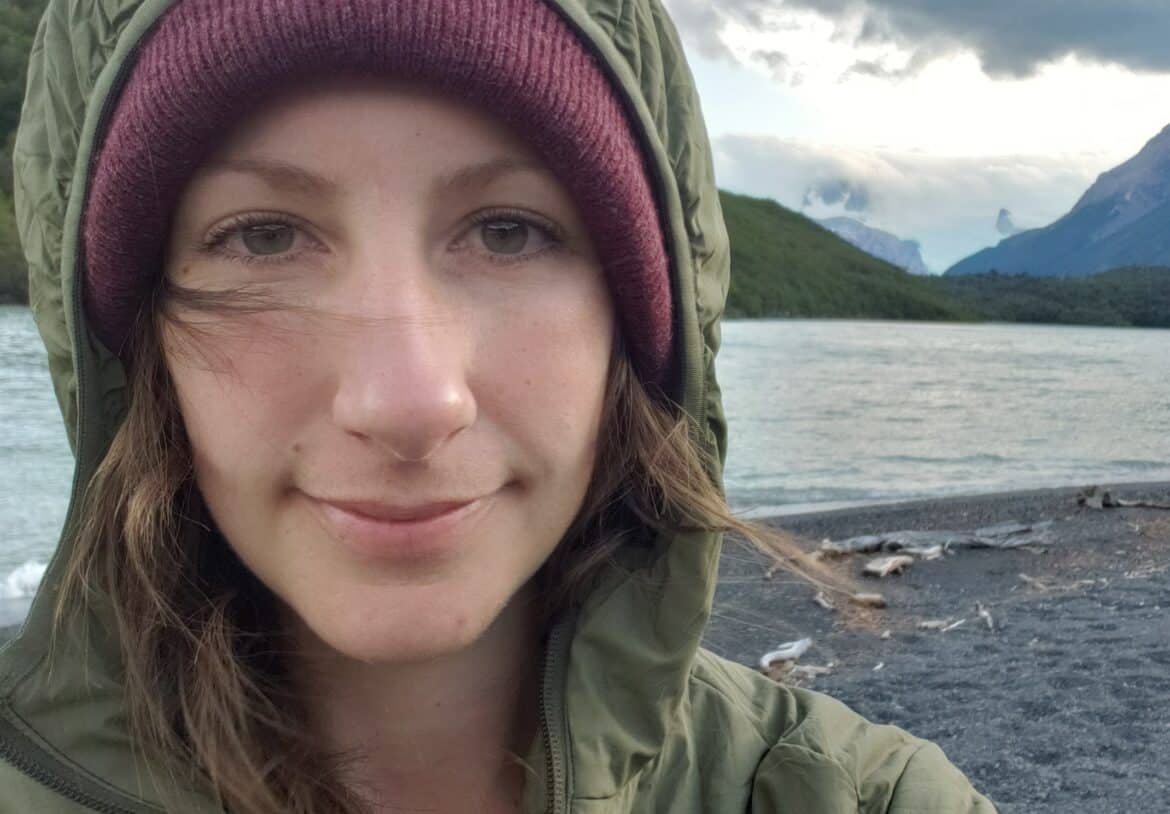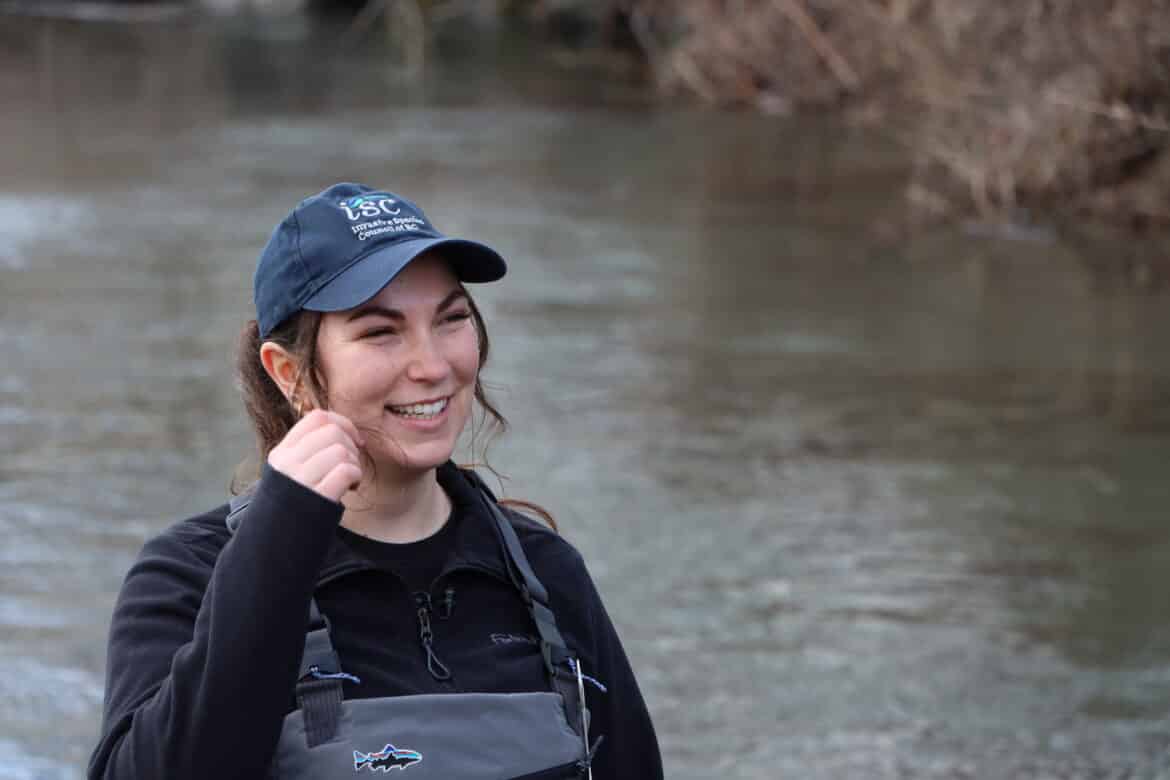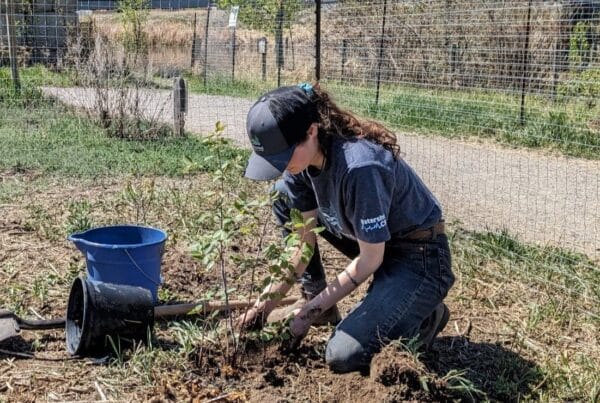By Lisa Houle | December 27, 2022
In the spirit of Auld Lang Syne – lest we forget old acquaintances – we thought it would be fun to catch up this winter with a series of articles about former ISCBC contract employees to find out where they are now. In some cases, it’s easy – they’re now regular employees of ISCBC. In other cases, they’ve gone on to work for other organizations.
The contracts referred to are the Job Creation Program (JCP) started in 2015, and StrongerBC (SBC) which began in 2020. JCP was an employment and skills training program in partnership with WorkBC, Ministry of Social Development and Poverty Reduction. Training crew members with skills to operate safely and competently on ground operations equipped them for entry level employment in any natural resources sector. StrongerBC was a collaborative program with the Province of BC, supporting individuals in training and providing work for people whose jobs were impacted by the COVID 19 pandemic. Both contracts provided the extra hands needed to help protect BC’s lands and waters from invasive species.
Here are a few people from those contracts we’d like to highlight for our first article!

Lara Phillips, Special Projects Lead at ISCBC, has had several roles within the organization. Joining us in July 2020, Laura started as a JCP Supervisor based in Salmon Arm, BC. She became a StrongerBC Action Team Supervisor for ISCBC in both Vernon, BC and Salmon Arm, followed by a position as Community Science Facilitator before landing her current role.
Why did you decide to take the job and what were you doing before this?
I had been working in the forest consulting industry for five years and was looking to expand my knowledge and gain experience in another environmental field. The job intrigued me because it had a lot of variety built into it and was a great opportunity to work collaboratively to make a positive impact on local ecosystems and communities.
What was your experience like?
My experience was amazing and far beyond what I expected! I moved to the Shuswap in the heart of the pandemic for the job and wasn’t sure how it would pan out. Everyone at ISCBC was so welcoming, provided excellent training and support, while also encouraging me to share my own ideas and pursue career goals. This was my first experience with a non-profit organization, and I enjoyed the focus on learning, skill development, and impactful work.
Do you think your work with ISCBC helped you with your future role?
Absolutely! Successfully completing one role provided me with the skills and knowledge needed to move onto the next one. My entire experience with the council has been a unique growth opportunity that led me to where I am now, and I look forward to seeing where my current role takes me in the future.
Coolest experience on the job with ISCBC?
It seems impossible to only pick one! I really enjoyed working on the Blanket Creek restoration project in Revelstoke. I’m super passionate about ecological restoration and it was great to participate in a multi-year project and learn all about the process happening in the park. There were lots of people working cooperatively together, the location was stunning, and lots of happy endorphins resulted from the labor-intensive work!

Cassidy Patton is a Special Projects Lead at ISCBC, focusing on the Invasive-Wise Tourism and Clean Drain Dry programs. She joined us in March 2021 working as an Action Team member for StrongerBC in Nanaimo, BC and Victoria, BC. From there she transitioned into the role of Field Operations Lead before starting her current position.
Why did you decide to take the job and what were you doing before this?
Growing up, I was always interested in biodiversity and conservation which lead me to specialize in ecological restoration in university. I graduated university at the beginning of the COVID pandemic, which posed a massive challenge in finding a job within the environmental sector. I was super excited to see ISCBC’s Action Team job posting, as it was a field-based job (which I love) and would allow me to work in ecological restoration.
What was your experience like?
I worked as an Action Team member for six months, and I can honestly say that I enjoyed every second of it! Although some days can be challenging, each new site we visited offered gorgeous views, interesting native species, and good comradery. I increased my knowledge on native and invasive species and was able to gain certifications (like Pesticide Applicator Certification) along the way. Working in the field is such rewarding work because you can really see the positive impact you are making in your local environments.
Do you think your initial work with ISCBC helped you with your current role?
Working on the Action Teams allowed me to become super familiar with ISCBC, as well as our regional invasive species organizations and affiliates. I was able to work on my data management and organizational skills, as well as relationship building with external organizations. Because of these skills, and the relationships I had built, I was able to transition into the role of Field Operations Lead.
Coolest experience on the job with ISCBC?
Stand-up paddleboarding down the Sooke River to inventory knotweed species. What an incredible day that was!

Lisa Houle, Communications Coordinator at ISCBC, joined the JCP program in March 2015 as a field crew member in Vernon, BC. After a seven-year hiatus from the council, Lisa came back to ISCBC in May 2022.
Why did you decide to take the job and what were you doing before this?
I had just finished a couple of work contracts in local government doing communications, marketing and outreach, the latter of which focused on water management and aquatic invasive species. Having learned the devastating impacts invasive mussels pose to infrastructure alone, this was my introduction to the world of invasive species, and I was hooked. When the position came up with ISCBC to use my hands to manage invasive species rather than just talk about it, it was a logical next step.
What was your experience like?
It was a great experience doing something completely different – being outside, learning about invasive plants, and removing them mechanically and chemically. It was an opportunity to learn new skills, interact with ministry officials, and create presentations for the public. When my contract was ending, the Ministry of Environment was recruiting contract Compliance and Enforcement officers for the Aquatic Invasive Species program and encouraged those of us working with ISCBC to apply. Once I got that position, it really gave me a taste for the law component behind invasive species management and it put me on track for going back to university and getting my Resource Management diploma as a mature student. I graduated university in 2020, fortunately having gained some further employment in compliance and enforcement, including being a Park Ranger. When this latest opportunity with ISCBC came up, it was a chance to get back into Communications and it was nice to see that some people I worked with previously were still here.
Do you think your initial work with ISCBC helped you with your current role?
I often think about the domino effect on my life by saying yes to that first position with ISCBC. It gave me a deeper understanding of the impact of invasive species on our environment and it put me on the path to where I am today. Now I get to share stories and connect with people, getting others interested in the good work we’re doing at ISCBC.
Coolest experience on the job with ISCBC?
Getting my Pesticide Applicator Certification and using the techniques I learned to stop an invasive plant from crossing railroad tracks and entering a nearby lake. Phragmites was our target. Even years later, I keep an eye out for Phragmites, it’s just ingrained in me now. I think that connection will always be there.

Torin Kelly is a Special Projects Lead at ISCBC. Joining us in October 2019, Torin started as an interim JCP Supervisor based in Williams Lake, BC. When that contract finished, Torin remained with ISCBC in an untitled role, working on a multitude of projects including mussel monitoring and our successful Volunteer youth program. These days, Torin’s role includes everything from technical expert, researching for updated plant and animal factsheets, to designing social media posts for our upcoming INVASIVES 2023 Forum & AGM. Anything and everything that needs to be done, Torin is on it.
Why did you decide to take the job and what were you doing before this?
I was working for an invasive species management company in the Lower Mainland, mainly focusing on herbicide treatments of knotweed and hogweed. I really wanted to move somewhere else in the province and I saw the opportunity to use my experience managing people and my new invasive plant management skills together. I was hired after taking a boiling hot interview in my previous work’s truck on my lunch break, no A/C in 30-degree heat and smoke. It’s safe to say I was happy I got this role!
What was your experience like?
It was a great opportunity to flex the skills I had recently learned from my schooling in an unfamiliar environment. Working for a non-government organization was a very different environment for me. I didn’t expect the breath of skills and opportunities I would need to learn to do my job effectively.
Do you think your initial work with ISCBC helped you with your current role?
Yes, the flexibility required to work in any position at the ISCBC has really helped me prepare for this jack-of-all-trades role of special projects lead. Working for ISCBC has also given me the confidence and opportunities to take on new challenges and job roles I never thought I would be able to do. It has really instilled in me the need to always be growing and learning, pushing myself into unfamiliar territory of work.
Coolest experience on the job with ISCBC?
Traveling across BC to run invasive species management workshops for different organizations. I had the amazing opportunity to lead pesticide application training sessions for Stillwater Consulting, and invasive plant identification course for Spectrum Resource Group and over 10 schools across BC. Another great experience was finding all the small lakes in the Cariboo while working on the invasive mussel monitoring program, I even had a lovely couple feed me lunch and tell me about the history of their property!
The invasive species world is a close-knit one – chances are we’ll be running into our former contract employees again in one capacity or another. Were you a JCP or StrongerBC employee of ISCBC? We’d love to hear from you to feature you in our next article! Contact Lisa at lhoule@bcinvasives.ca
Lisa is a Communications and Outreach Coordinator at ISCBC. She values a diverse environment and connecting with others about environmental protection. In her spare time Lisa enjoys spending time at the ocean and beach combing for sea glass. You can reach Lisa at lhoule@bcinvasives.ca
Share





